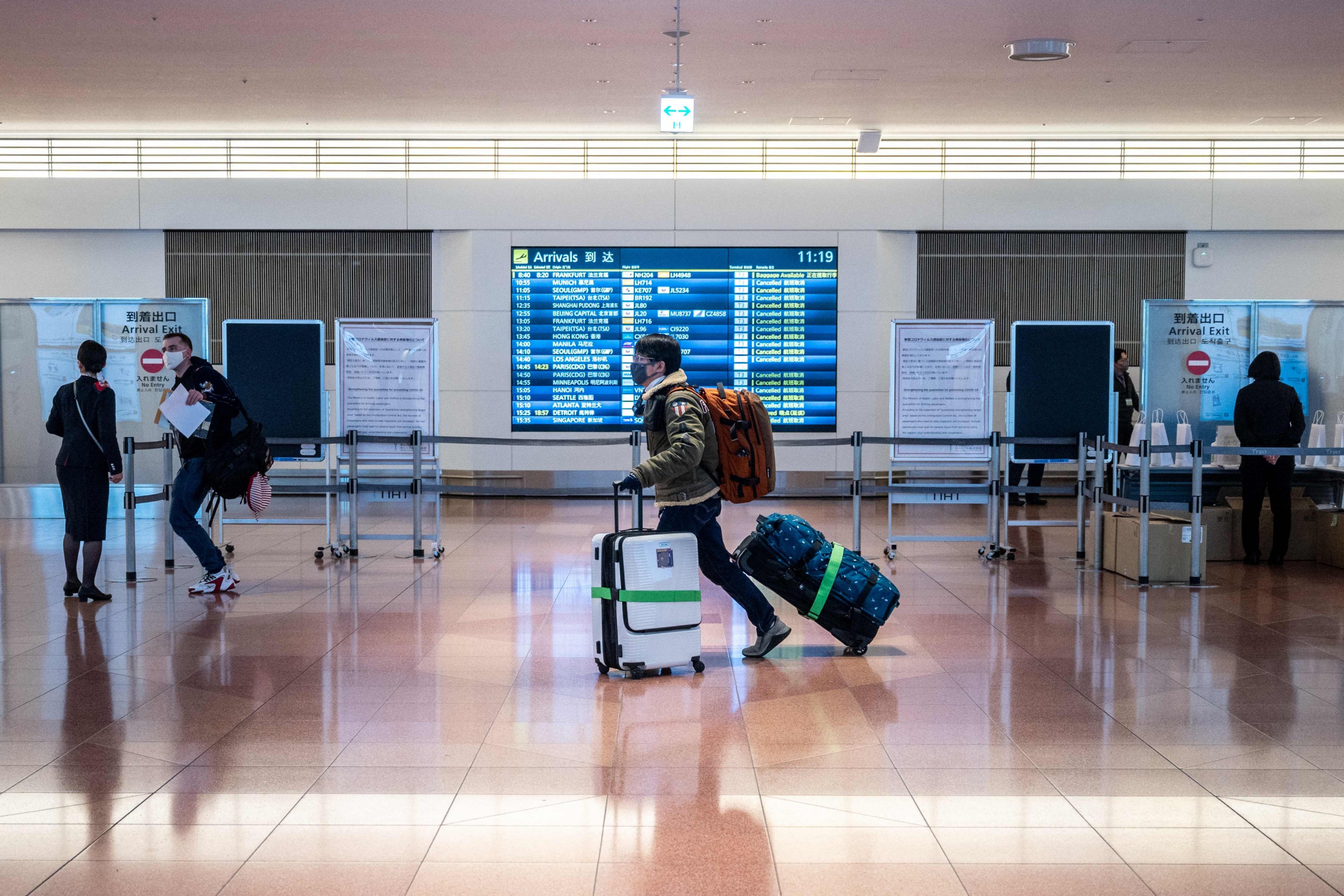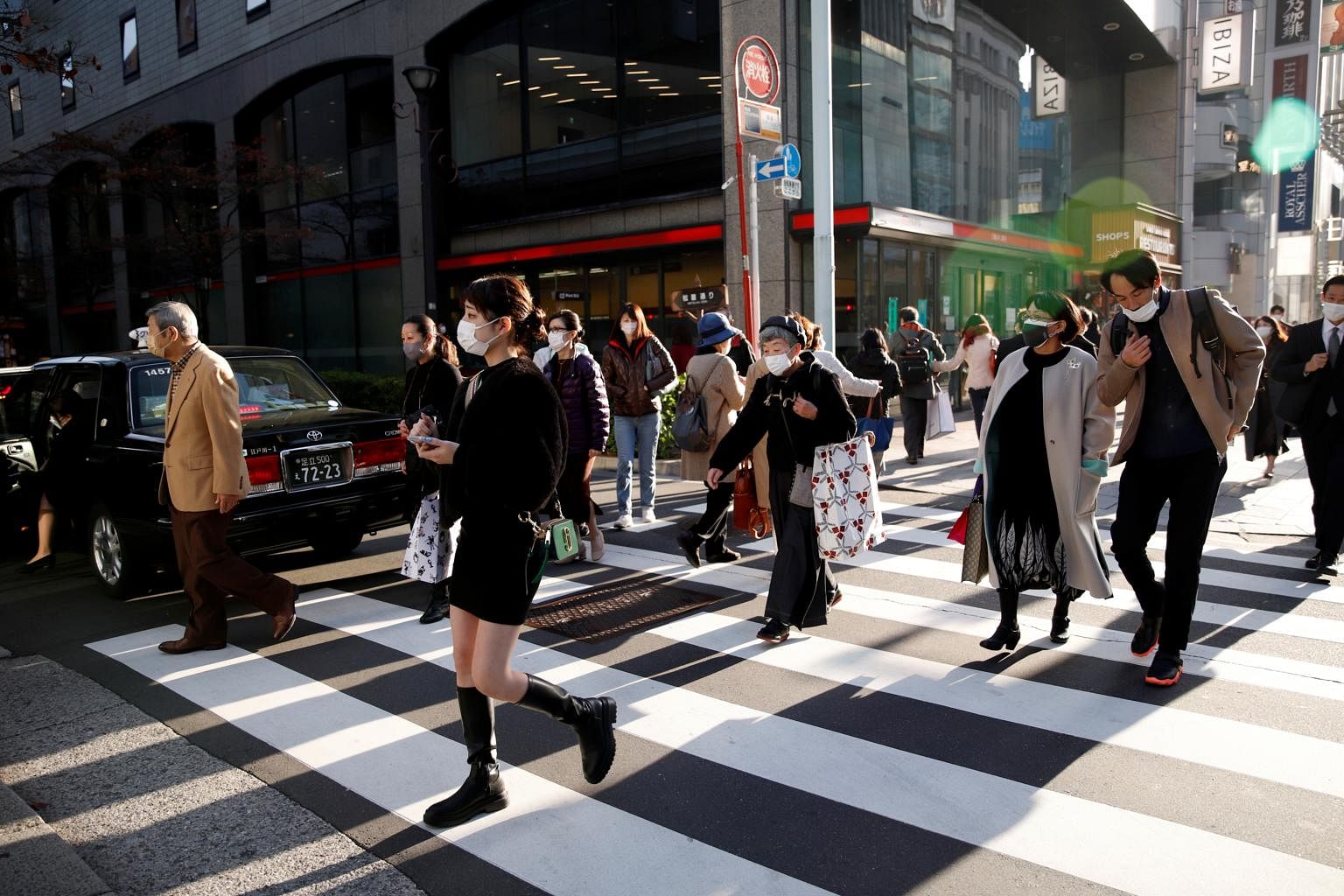Japan eases entry ban with limited reopening
Sign up now: Get insights on Asia's fast-moving developments

From March 1, the number of daily arrivals will be capped at 5,000 people.
PHOTO: AFP
TOKYO - Japan will allow the entry of some foreigners from March 1, Prime Minister Fumio Kishida said on Thursday night (Feb 17), as he rolled back a months-long entry ban that was derided as isolationist and inhumane.
The ban will be relaxed only for work and study - not for leisure. Mr Kishida is adopting a calibrated approach by allowing only a trickle of foreigners to enter as opposed to opening the floodgates.
From March 1, the number of daily arrivals will be capped at 5,000 people, up from the current 3,500. The figure will also include returning Japanese citizens and foreign residents.
The entry ban was put in place from late November to the end of this month to keep out the highly transmissible but less severe Omicron variant of the coronavirus.
But this has been slammed at home and abroad as anachronistic, unscientific and callous amid the variant's ferocious spread in Japan.
The restrictions - among the strictest in the world - put lives on hold. The Immigration Services Agency said that as at Jan 4, more than 400,000 visa holders were awaiting entry into Japan.
These include about 150,000 foreign students and 129,000 migrant workers, causing a labour shortage and damage to Japan's soft power.
It will take months to clear the backlog at the current rate.
Mr Kishida told a news conference that it would be "unrealistic" to open up even further at this stage, though he said it was time to prepare for a new phase, with the country "heading towards the exit of the sixth wave".
Mr Kishida, with an eye on an Upper House election in July, has been walking the fine line between public health and the economy. The prolonged Covid-19 pandemic felled his two predecessors.
More than 50 per cent of the public are in favour of the strict border measures, several media polls have shown. Analysts have pointed to this as a reason Mr Kishida's Cabinet approval ratings have not plunged as infections skyrocketed.
Amid global criticism, Mr Kishida said on Thursday that the strict measures had been effective in preventing an even worse outbreak, helping Japan to "buy time" to beef up its healthcare system.
He said he was confident that the calibrated approach would not lead to a new wave of cases. The approach involves a three-tier quarantine system for arrivals of either zero, three or seven days, depending on the departure country, vaccination status, and a negative Covid-19 test result.
The easing of borders coincides with optimism about the Covid-19 situation expressed by Dr Takaji Wakita, who chairs a Health Ministry Covid-19 panel. He said on Thursday that Japan appeared to be past the peak of the sixth wave, with the spread slowing in 36 out of 47 prefectures.
This included Tokyo where, with the 17,864 cases on Thursday, the seven-day average was 83.7 per cent that of last week.

Private consumption accounts for more than half of Japan's gross domestic product.
PHOTO: REUTERS
Still, the daily tally remained high, with 95,208 cases on Thursday as two prefectures - Iwate and Fukui - broke their one-day records. The number of patients seriously ill rose by 25 to 1,469, while there were a record 271 deaths.
Also, while Omicron has been described as less severe, February is on track to be Japan's deadliest month since the Covid-19 pandemic started.
The 2,446 deaths as at Thursday were 5.8 times the number of deaths in January, and just shy of the monthly record of 2,817 deaths last May.
Most fatalities were among the elderly, but Japan was also stunned by news this week that a male teenager in Saitama had died suddenly after contracting Covid-19. He was vaccinated twice and had no underlying conditions.
Given the strain on hospitals, Mr Kishida said that quasi-emergency measures would continue until March 6 in 31 prefectures, though he did not rule out lifting the declaration sooner if the situation improved.


